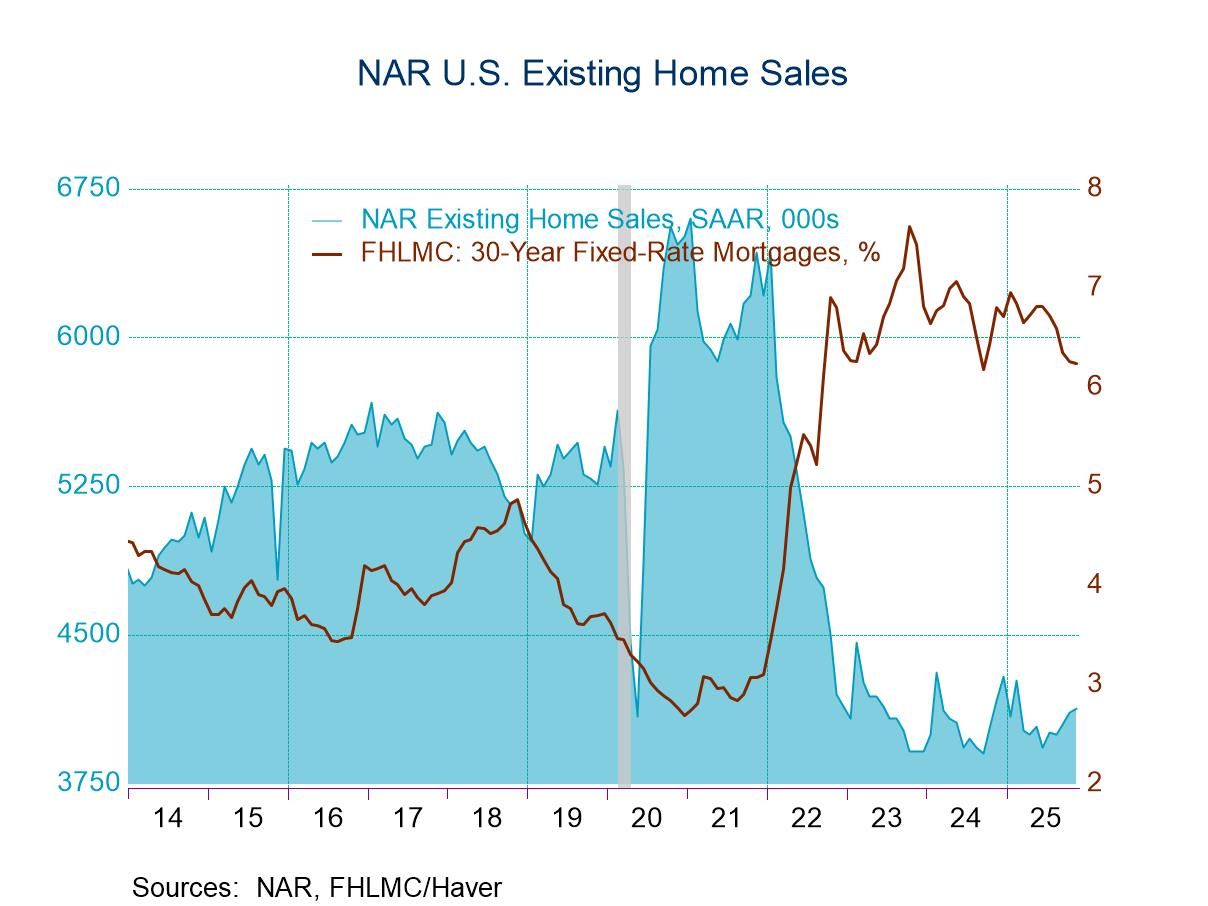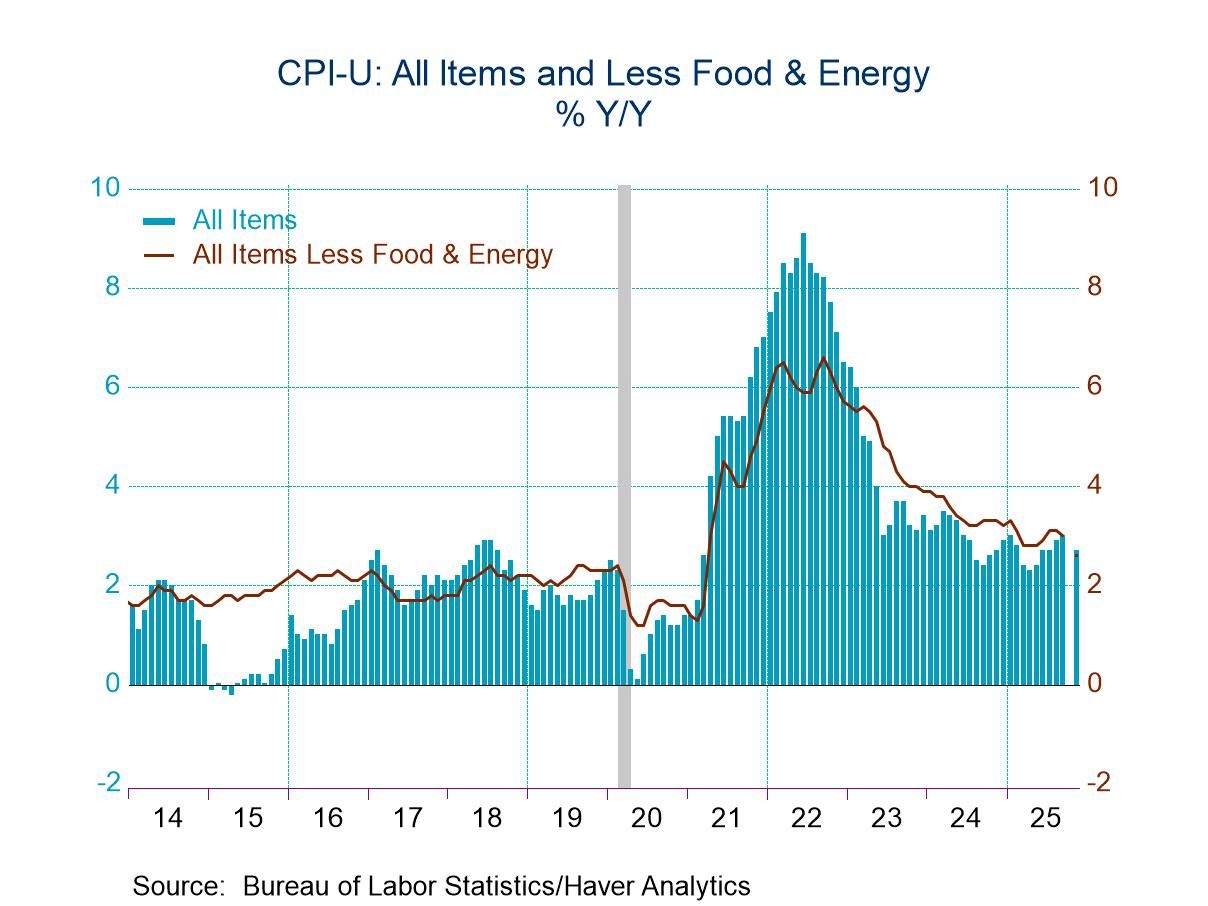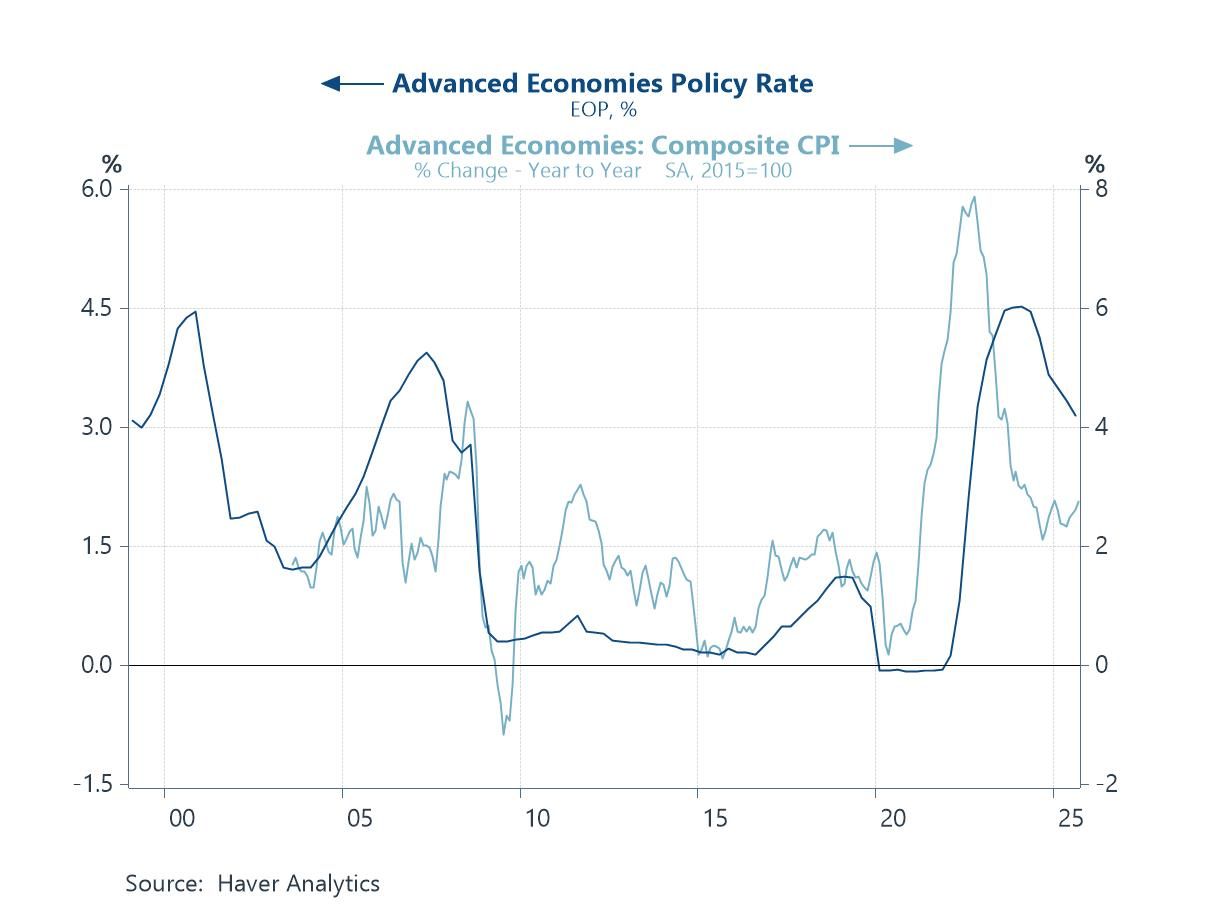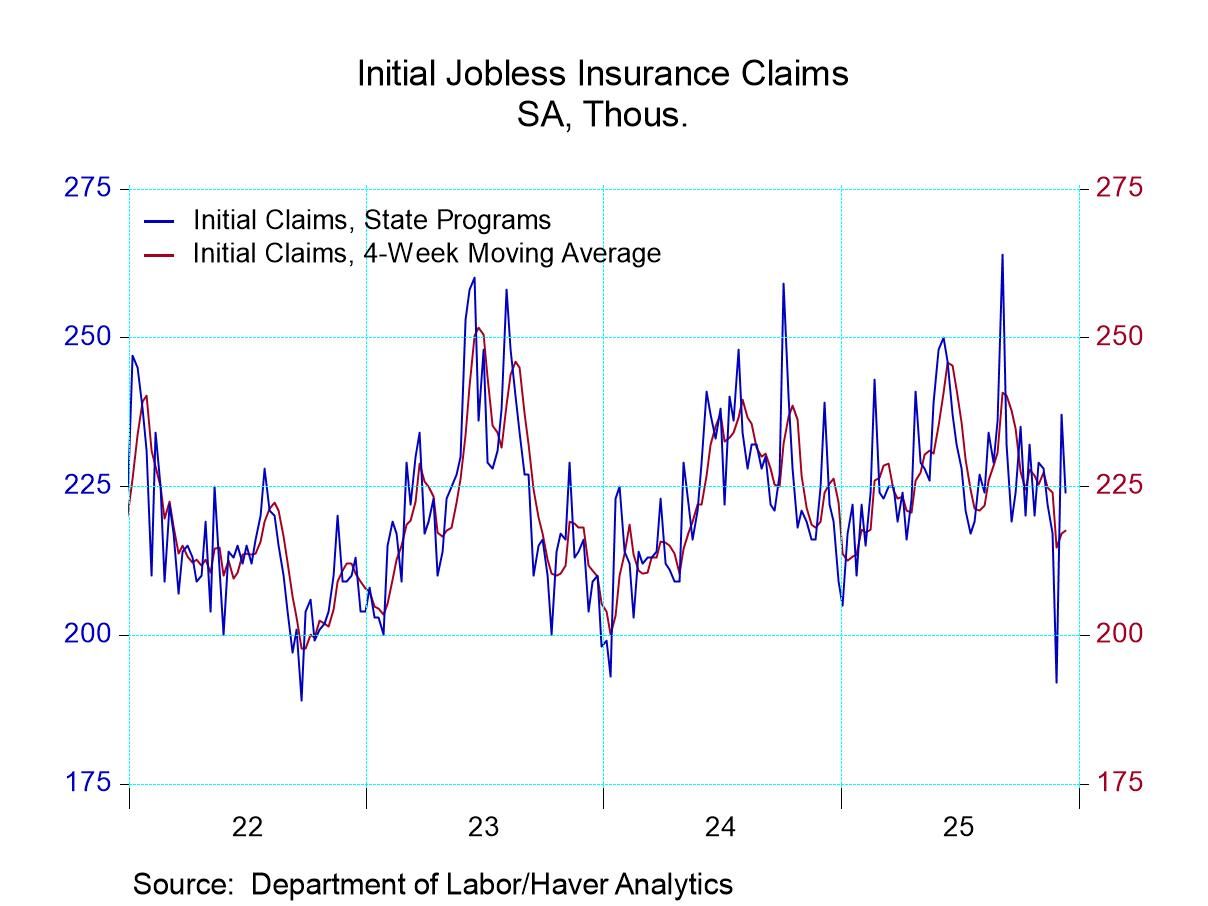 Global| Oct 22 2007
Global| Oct 22 2007German Real Wages Slide Lower Y/Y and Plunge in Current Quarter
Summary
The threat to growth in Europe has been named in the past weekends G-7 meeting as primarily due to the strong Euro. The Euro remains a threat to growth though Germanys finance minister was quite blasé about it in comparison to [...]
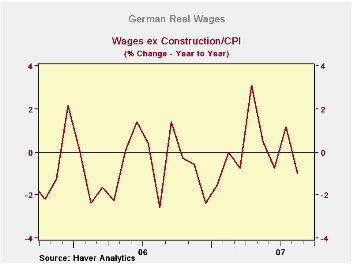
The threat to growth in Europe has been named in the past weekend’s G-7 meeting as primarily due to the strong Euro. The Euro remains a threat to growth though Germany’s finance minister was quite blasé about it in comparison to Trichet (of France and the ECB) and LaGarde (FinMin of France). Still one important factor remains, the consumer, and there the rise in energy prices remains a problem as headline inflation is eroding real wages. Real wages may not be deemed ‘growth threat number one’, but just because your picture is not framed at the top of the most-wanted list at the post office is no reason to count the risk as benign. Real wages are dropping on the sequential growth rates at an increasingly rapid pace. In the third quarter they are falling at a pace of nearly 5% annualized.
| Month-to-Month | At Saar | Saar | |||||
| Aug-07 | Jul-07 | Jun-07 | 3-Mo | 6-Mo | 12-Mo | Qtr-2-Date | |
| Wages | -2.5% | 1.1% | -0.5% | -7.4% | 0.5% | 1.0% | -2.8% |
| Inflation (CPI) | 0.1% | 0.3% | 0.1% | 1.8% | 2.7% | 2.0% | 2.2% |
| Real Wages | -2.6% | 0.9% | -0.6% | -9.0% | -2.1% | -1.0% | -4.9% |
Robert Brusca
AuthorMore in Author Profile »Robert A. Brusca is Chief Economist of Fact and Opinion Economics, a consulting firm he founded in Manhattan. He has been an economist on Wall Street for over 25 years. He has visited central banking and large institutional clients in over 30 countries in his career as an economist. Mr. Brusca was a Divisional Research Chief at the Federal Reserve Bank of NY (Chief of the International Financial markets Division), a Fed Watcher at Irving Trust and Chief Economist at Nikko Securities International. He is widely quoted and appears in various media. Mr. Brusca holds an MA and Ph.D. in economics from Michigan State University and a BA in Economics from the University of Michigan. His research pursues his strong interests in non aligned policy economics as well as international economics. FAO Economics’ research targets investors to assist them in making better investment decisions in stocks, bonds and in a variety of international assets. The company does not manage money and has no conflicts in giving economic advice.



